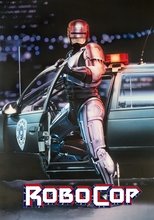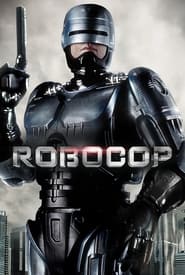RoboCop Film Analysis and Breakdown (VID)
Wiki Article
Violence and near-apocalypse happen in a violent city called Detroit. The city government hires Omni Consumer Products to privatize the police force. Crime-fighting cyborgs: The company leads street cop Alex Murphy (Peter Weller) into a fight with crime lord Boddicker (Kurtwood Smith) so they can use his body to test their untested RoboCop. But when RoboCop finds out about the company's evil plans, he turns on his boss.
A police officer named Murphy (Peter Weller) has just been moved to one of the city's most dangerous places. In the middle of the night, he and his new partner, Officer Lewis (Nancy Allen), respond to a call that leads them into a fight with Clarence Boddicker (Kurtwood Smith) and his gang, who are easily the most vicious criminals in the whole city of Detroit. Murphy is cornered and killed by Boddicker's men in a warehouse that hasn't been used in a long time.
Murphy's corpse is handed over to the Omni Corporation for use in a top-secret project that, if successful, would create a new kind of officer, a cyborg with impenetrable armor and advanced weapons. The “Robocop Program” is a smashing success, thanks to Bob Morton (Miguel Ferrer), who fought against Omni's senior executive Dick Smith (Ronny Cox) to acquire money for his initiative.
As for whether or not Robocop is more machine than man, will the memories of his "human" past still keep him up at night?
Robocop is a great mix of sci-fi and action. It has a lot of great scenes. The first fight between Murphy and Boddicker's gang is bloody as hell. Boddicker shoots Murphy's hand off with a shotgun. Verhoeven shows us every bloody part of it (in the uncut version, anyway). Another very graphic scene takes place in the Omni Corporation's board room, where Dick Jones is showing off his favorite project, the ED-209, a huge robot with a lot of weapons. There are still some problems with the ED-209, which become clear when it blows away Kinney (Kevin Page), the young executive who agreed to be a test subject.
When Robocop takes to the streets, the action intensifies, particularly when he's up against Boddicker and his henchmen. Robocop stumbles into a heist in process on his first night out, with Emil (Paul McCrane), one of Boddicker's men, threatening a gas station employee with an automatic rifle. This meeting not only provides a thrilling action sequence, but it also brings back memories for Robocop, who remembers his old existence after identifying Emil as one of Murphy's murders.
This isn't all: There are TV news segments on anything from Detroit crime to social turmoil in Mexico, as well as commercial breaks for a family board game based on thermonuclear war, my favorite of which. To ensure that Robocop doesn't become monotonous, director Verhoeven threw in everything but the kitchen sink.
If you like films with a message, Robocop is guaranteed to appeal to you.
In the movie "RoboCop" there is a scene early on when a robot goes crazy. It has been set up to tell a criminal to drop his gun, then shoot him if he doesn't. The robot, which is ugly and unwieldy, is wheeled into a board meeting of the company that wants to sell it for a lot of money. A junior executive is chosen to pull a gun on the machine, and he or she does. Warned: The exec lets go of his gun and puts it away. The robot repeats the warning, counts to five, and shoots the guy dead, then it dies too,
This is a hilarious scenario. (Whether it was funny before the MPAA Code and Ratings Administration sought cuts is a moot issue, I guess.) It's amusing in the same sense that the assembly line in Chaplin's "Modern Times" is amusing - because logic applied to a situation where it's irrelevant is amusing.
A young scientist believes that by fusing technology and the human brain, he might create a better police officer. Fortunately for him, a fallen hero (Peter Weller) gives him an opportunity to prove himself. Not quite dead, then. The first "robocop" is built around a human core, a half-man, half-machine that functions with faultless logic save for the shreds of human spontaneity and intuition that may be hiding somewhere in its memory.

Co-star Nancy Allen plays Weller's colleague in the movie before he was killed. In the end, she understands what it is: Her former colleague, Weller, is inside that steel suit. Since Weller's original nose, mouth, chin, and jaw all visible, it shouldn't have taken her long to figure that out. To paraphrase Batman and Robin, a person cannot be recognized until they can see their eyes.
Surprisingly, the robocop's voice, which is a mechanical monotone, expresses a lot of his individuality. For years, machines and robots have talked in this manner in movies, and now reality is following suit; I was at the Atlanta airport a few weeks ago, riding the shuttle train to the terminal, when the train began speaking in an uninflected monotone, much like robocop. ("Your-attention-please-the-doors-are-about-to-close.")
The majority of thriller and special-effects films are made to order. You can predict every turn of events and almost always be correct. "RoboCop" is a thriller unlike any other.
On July 17, 1987, RoboCop was released in the United States and Canada. The picture earned $8 million from 1,580 cinemas in its first weekend, an average of $5,068 per theater. It was the top picture of the weekend, beating off a re-release of the 1937 animated classic Snow White and the Seven Dwarfs ($7.5 million) and the horror sequel Jaws: The Revenge ($7.2 million), both of which were in their first week of release. RoboCop maintained its lead over Snow White ($6.05 million) and the debuting comedy Summer School ($6 million) in its second weekend, grossing an extra $6.3 million. RoboCop earned $4.7 million in its third weekend, behind only La Bamba ($5.2 million) and the horror films The Lost Boys ($5.2 million) and The Living Daylights ($11.1 million).
For the first time, 1987 broke the $1.58 billion record established in 1984, thanks to greater ticket prices and an additional week of theatrical summer. Aside from Ghostbusters and Indiana Jones and the Temple of Doom, the summer of 1987 had just one blockbuster: Beverly Hills Cop II. A total of 274 million dollars was earned, a 50% increase over 1986, despite the success of additional films, including Robocop. In comparison to 1986, teen-friendly films like RoboCop and Beverly Hills Cop II performed 22% worse. Adult-targeted films enjoyed a 39% revenue boost. RoboCop was a summer surprise hit for Orion.
Response to Criticism

Aliens (1986), The Terminator (1984), and the stories of Frankenstein (1931), Repo Man (1984), and Miami Vice were all influenced by the movie. As Blade Runner had done for Los Angeles, RoboCop built a unique, futuristic picture of Detroit. Multiple critics had a hard time figuring out what kind of movie this was. They said it had elements of action, science fiction, thrillers, Westerns, slapstick comedy, romance, snuff films, superhero comics, and camp, but not all of them.
Many reviewers talked about the movie's violent content. ED-209 killing an executive was so violent for Ebert and the Los Angeles Times that they found it intentionally funny. Ebert said that ED-209 killing an executive changed the audience's expectations for a science-fiction movie that seemed to be very serious and simple. A newspaper in the Los Angeles area thinks that the violent scenes worked well at making people both sad and moved at the same time. It was not all bad: Kehr and Walter Goodman didn't like RoboCop because they thought that its satire and critiques of corporate corruption were used as an excuse to show violence. They thought the violence had a "brooding, agonized quality ... as if Verhoeven were both appalled and fascinated" by it. The Christian Science Monitor said that critical praise for the "nasty" film was a sign of a preference for "style over substance"
Riffs and Reviews Decker Shado // The Movie Database Report this wiki page
